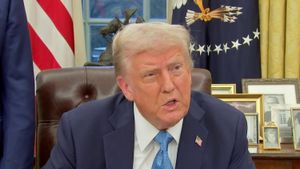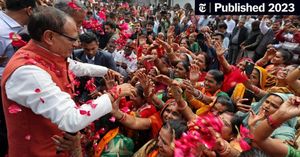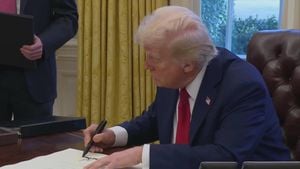Germany's migration policy remains at the forefront of political discourse, featuring intense debates and contrasting positions among the major parties. On Friday, the Bundestag saw heated discussions surrounding the CDU's recent proposal aimed at curbing immigration, leading to sharp exchanges between key politicians, including Federal Foreign Minister Annalena Baerbock of the Green Party and her CDU counterparts.
The backdrop to these debates is the CDU's assertion of its migration policy stance during their party congress. "We stand before a genuine directional decision," remarked Thorsten Frei, the CDU's parliamentary head, as reported by Rheinische Post. He emphasized the urgency to push forward with strategies to reverse what they see as stagnant policies under the governing coalition of the SPD and Green Party. The CDU is set to propose immediate measures to lessen energy costs and reduce bureaucracy as part of their broader agenda to secure national interests.
Baerbock’s sharp criticism surfaced prominently as the CDU focused on the issue of Afghan refugees, highlighted by Frei's remarks about the government's approach to their voluntary intake. During the spirited debate, Frei highlighted the government's standing commitment to resettle Afghan nationals, stating, “The number of voluntarily accepted Afghans is a subject of numerous parliamentary inquiries and is well documented.”
Despite this assertion, Baerbock challenged the narrative. She recalled her inquiries about the effectiveness of the Federal Admission Programs for Afghans, contending, "Your debate has become absurd." Notably, since 2022, Germany has successfully accepted around 24,000 Afghan refugees under varying programs, including those organized through Pakistan. Baerbock's Ministry confirmed the resettlement procedures follow strict security standards, directly rebutting Frei's claims and insisting on the reality of the government’s operations.
On the parliamentary floor, the tension escalated as CDU leader Friedrich Merz and Baerbock engaged directly. Baerbock implored the CDU to reconsider their approach, warning against collaborating with the far-right AfD party, stating, “Do what is right,” referencing previous votes where the AfD supposedly aligned with CDU on migration issues. This call for ethical leadership underscored the Green Party's agenda to uphold European legal standards amid rising nationalist sentiments.
The CDU's migration bill itself—a focal point of criticism—was met with strenuous opposition. Baerbock pointed out the bill's incompatibility with European law, questioning the CDU’s direction on migration. “We wanted to make Europe’s largest migration policy decision with you. Instead, you opt for national isolation,” she declared passionately before parliament.
This passionate back-and-forth was set against Baerbock’s pointed remarks directed at sexist comments made during the session. She confronted her peers, saying, "I continuously hear sexist interjections indicating women should not be tasked with complex questions." Her defense of equality and fair treatment amid legislative discussions speaks to the modern challenges faced within Germany’s political engagement.
While Baerbock expressed frustration over perceived backpedalling on humane policies, Thorsten Frei countered her accusations, referring to her statements as disingenuous—labeling them, “completely devoid of factual basis.”
The debate culminated not only as a dialogue about migration policy but also as a broader reflection on gender dynamics within German politics. Baerbock added, “That men, when they run out of arguments, throw around the word ‘lie,’ I’m well accustomed to,” highlighting the challenges women face and reaffirming her commitment to change.
Concisely, the recent discussions serve as a microcosm of the broader struggle over migration policies and the accompanying societal values within Germany. The CDU's push for stricter controls and the Greens' commitment to protective measures reveal the stark contrasts shaping the national discourse. Looking forward, the migration policy debate is more than legislation; it’s about the values society upholds and the realities facing vulnerable populations.
With the CDU’s proposed migration plans failing to pass, and the stark divide persisting between progressive and conservative views, the discussions over Germany’s future course on migration are sure to continue, compelling leaders on all sides to grapple with challenging questions and the potential for reform.



